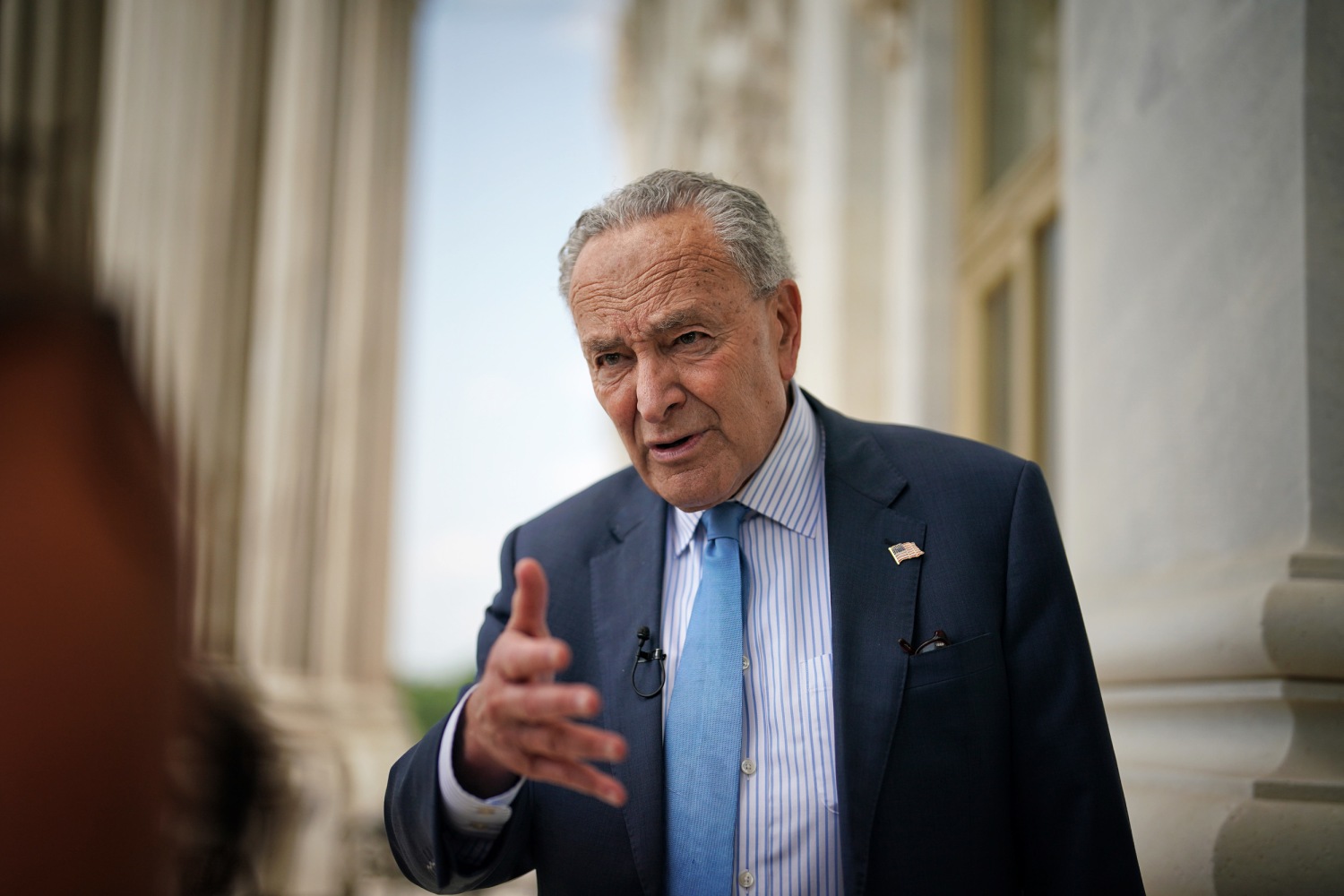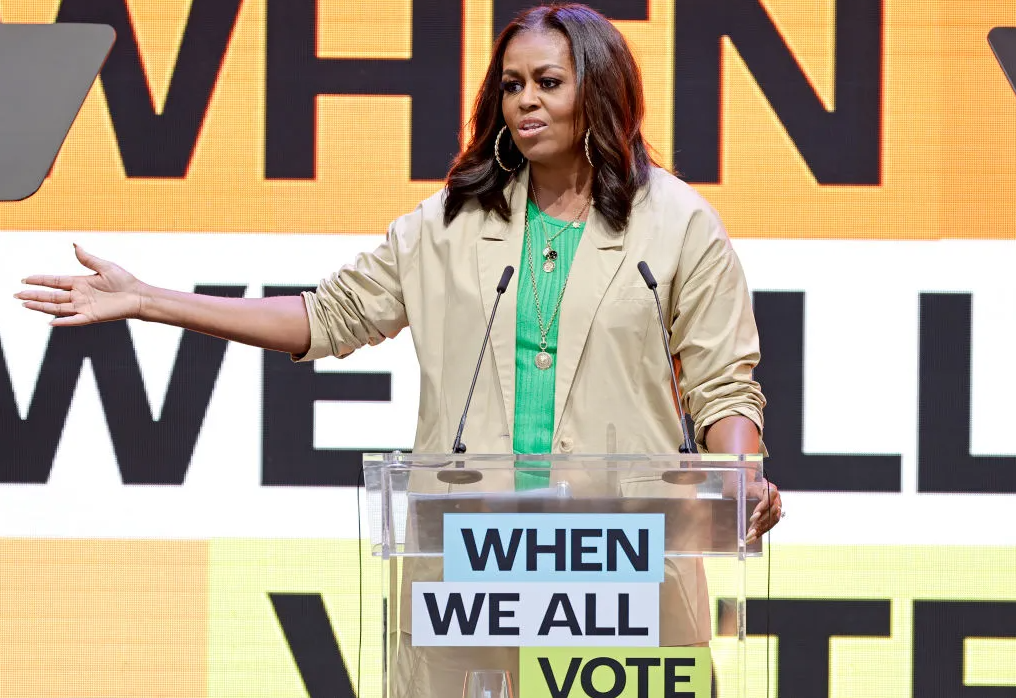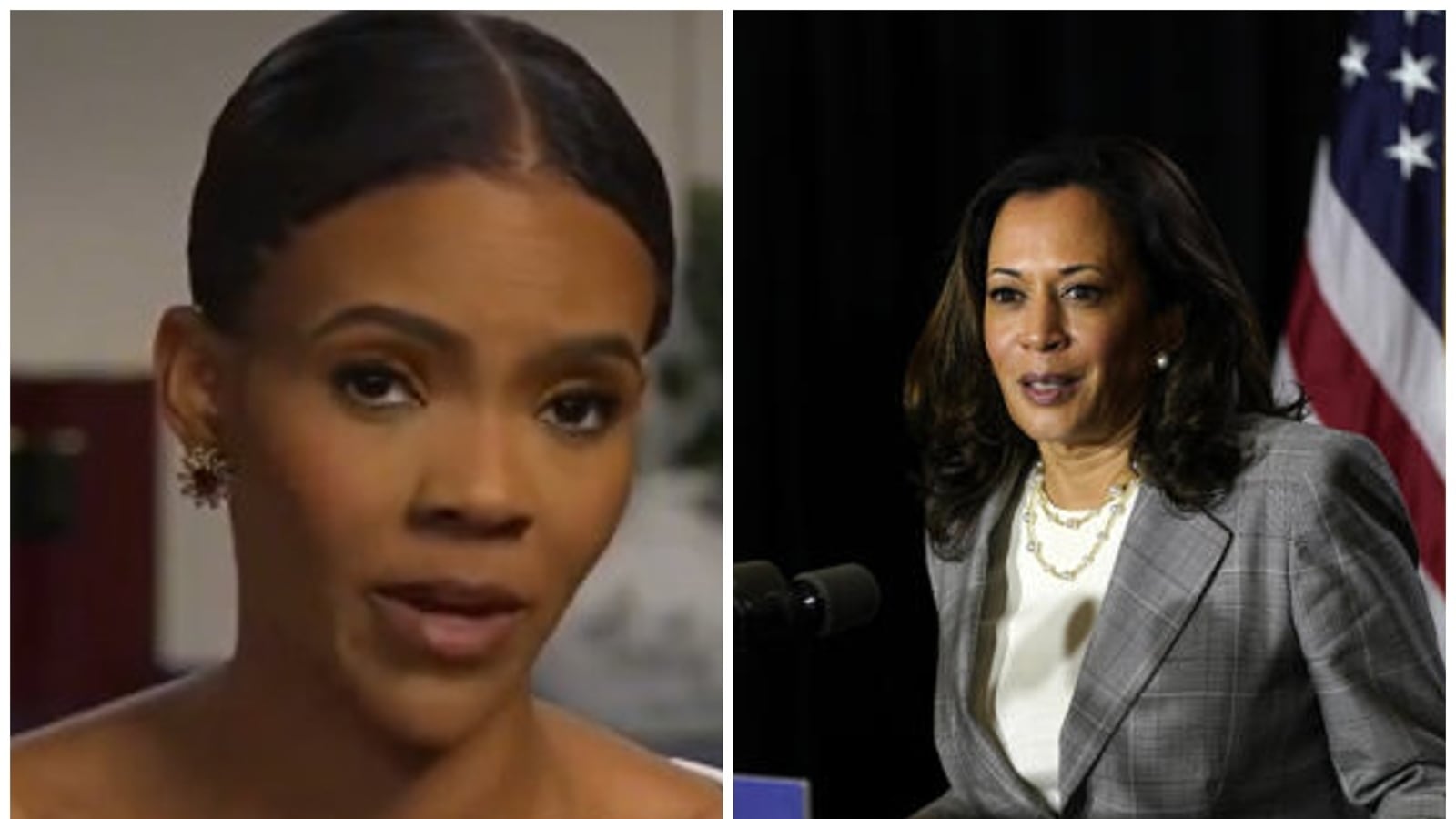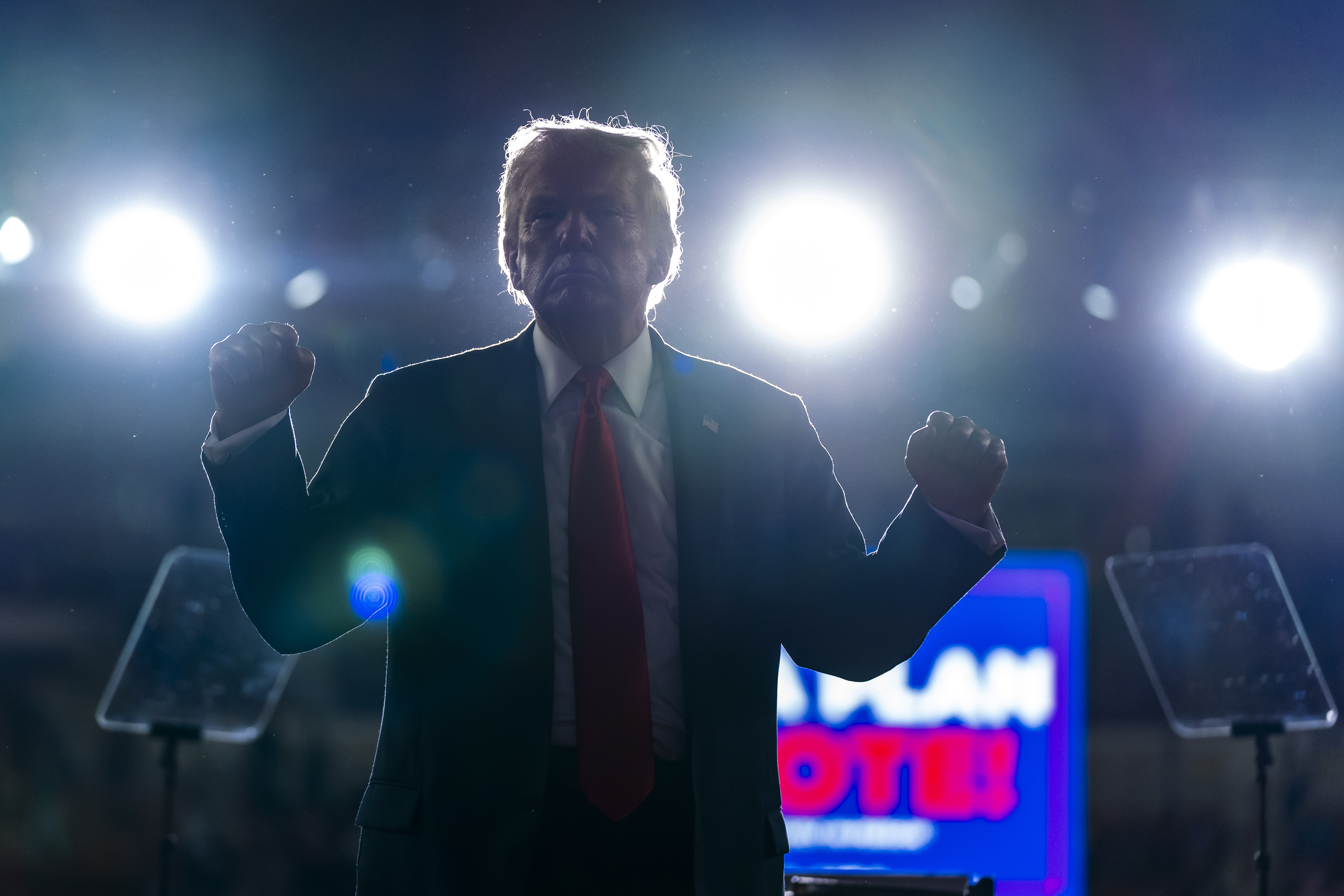- BlackVoter.Org
- Posts
- BLACKVOTER.ORG #110
BLACKVOTER.ORG #110
Empowering Awareness: Stay Grounded With Blackvoter.org Newsletter!Empowering voices, driving change. 🗳️ Advocate for justice, equity, and representation at BlackVoter.org. Join us as we harness the power of the ballot to shape a future that reflects our values and aspirations. #BlackVoter #EmpowerChange Publish Time



Vice President Kamala Harris's decision to run for president has sparked a surge in voter registration among Gen-Z, with numbers increasing by a remarkable 700%. This significant increase in registration reflects not only a shift in the political landscape but also the growing influence and importance of younger voters in shaping the future of American politics.
Gen-Z, born between 1997 and 2012, has grown up in a time of rapid technological advancement and social justice movements, making them acutely aware of the impact of political decisions on their lives and the world. Harris's campaign has resonated with this demographic due to her progressive stances on climate action, social equity, and economic reform.
The increased engagement of younger voters has the potential to reshape the electoral landscape, drive candidates to address important issues, and increase voter turnout. The involvement of Gen-Z is crucial for a vibrant and representative democracy as it brings fresh perspectives, fosters long-term engagement, and addresses future challenges.

Democratic leader Chuck Schumer has defended vice president Kamala Harris as a "strong Black woman" whom former President Donald Trump is afraid to debate. Schumer made the comments in response to Trump's recent statement that Harris only recently "became Black.
" He accused Trump of making "crazy" statements and becoming increasingly unhinged as his poll numbers drop. Harris herself has also claimed that Trump is too afraid to debate her.
Trump and President Joe Biden had agreed to participate in a second debate, but after Biden dropped out and Harris entered the race, Trump appeared to back away from the deal. Schumer also criticized Trump for denigrating him and falsely calling him a "Palestinian" and a "proud member of Hamas.

Former Housing and Urban Development Secretary Dr. Ben Carson has praised former President Trump for appearing at a "hostile" National Association of Black Journalists (NABJ) convention in Chicago.
Trump faced tough questioning from journalists at the event, with ABC News reporter Rachel Scott calling out his controversial statements and actions towards Black people. Trump responded by criticizing the news network and asserting his support for the Black population.
During the event, Trump also suggested that Vice President Kamala Harris chose to "turn Black" in recent years. Carson also criticized Harris for not attending the event, accusing the NABJ of doing her bidding.
Trump's appearance at the convention, despite the confrontations, was seen as an attempt by him to reach out to Black voters.

BLK, a dating and community app dedicated to the Black community, has partnered with Michelle Obama's When We All Vote initiative to increase voter participation among Black voters. The campaign aims to empower Black voters and address the historical barriers they have faced, including discriminatory laws and systemic disenfranchisement.
In light of recent developments, such as the Supreme Court's decision to weaken the Voting Rights Act of 1965 and the use of false claims of voter fraud to justify voter discrimination, the campaign has taken on a renewed sense of urgency. BLK has released the results of a user survey that found that a majority of respondents believe the U.
S. is ready for a Black female president and that they personally support Kamala Harris.
The app has also partnered with other organizations to streamline voter registration, recruit poll workers, and provide localized voting updates. This campaign follows BLK's previous partnership with When We All Vote for the 2022 midterm elections.

In a recent meeting of the National Association of Black Journalists, former President Donald Trump made controversial remarks about Vice President Kamala Harris, questioning her racial identity. Trump suggested that Harris "turned Black" at some point, ignoring her long-standing identification as Black and her connection with Black institutions and communities.
This statement is reminiscent of Trump's past use of birtherism to discredit former President Barack Obama and his attacks on Senator Elizabeth Warren. Trump's comments demonstrate his willingness to use race and identity as divisive political tools, appealing to those who fear their white privilege is being threatened.
This is evident in the rise of the idea of "Black privilege" as a counterattack to discussions of white privilege. Trump's rhetoric reinforces racial resentments and reveals his true colors, contradicting his promise to heal the divisions in American society.
This raises important questions about the kind of vision Americans want for their country and whether they will embrace diversity or endorse suspicion and resentment in their political lives.


The Divine Nine, an organization made up of nine historically Black fraternities and sororities, is throwing its support behind Vice President Kamala Harris in her bid for the presidency. The Divine Nine, also known as the National Pan-Hellenic Council (NPHC), plans to use its extensive network to increase voter registration and turnout in key communities across the nation.
This support comes after President Joe Biden endorsed Harris as the Democratic nominee. The Divine Nine consists of fraternities and sororities such as Alpha Kappa Alpha, Delta Sigma Theta, and Zeta Phi Beta, and has nearly four million members nationwide.
These organizations have a long history of advocacy and community service, making them influential in American politics, especially among African American voters. They have previously rallied around Harris's campaigns, demonstrating their mobilizing power.
In addition to fundraising, the Divine Nine aims to drive voter registration and turnout, particularly among younger voters and marginalized communities. Their support not only helps secure votes for Harris but also emphasizes the importance of community in shaping the political landscape.
The Divine Nine's historical commitment to advocacy and collective action suggests a bright future for a diverse and representative political system in America.

Conservative media personality Candice Owens has expressed outrage over former President Donald Trump's refusal to acknowledge Vice President Kamala Harris' authentic blackness. Owens posted a video on X discussing Harris, in which she joked that she would vote for her and called her a "strong black candidate.
" Owens argued that Harris has always identified as both Indian and black, and questioned Trump's suggestion that Harris "turned black" in recent years. Owens also mocked the Democratic party's strategy to secure black votes, claiming that they find black people who have died at the hands of the police to talk about police brutality and find rappers to claim they are black.
Owens concluded by saying that if black voters choose to support Harris, they "deserve what they get.

Former President Donald Trump's recent questioning of Vice President Kamala Harris' race demonstrates a lack of understanding of a common practice among politicians of color: code-switching. Code-switching refers to deliberately adjusting one's speech style and expression to optimize relatability and cultural resonance.
Harris, the first Black woman and Asian American to serve as vice president, is skilled in code-switching, having developed it as a person of color navigating the world of politics. Trump's failure to recognize code-switching reflects a belief that whiteness is the default in politics and democracy, undermining the experiences and identities of people of color.
Code-switching is a valuable communication tool for politicians of color to gain influence and power in contexts where they historically have not had it. It is a way for them to connect with different communities and address a range of issues.
Trump's comments and lack of understanding highlight the importance of embracing and celebrating all identities in politics.


In his bid for the 2024 presidential campaign, Donald Trump is leveraging racial attacks against Vice President Kamala Harris, who is of Jamaican and Indian heritage. Trump's recent charge that Harris "turned Black" for political gain has outraged Democrats and caused some Republicans to distance themselves from the comment.
However, Trump's rhetoric and history on race indicate that divisive attacks on race may become a core argument for the GOP leading up to the election. Trump's campaign adviser argues that the focus should be on Harris's liberal policies, but Trump himself has doubled down on attacking Harris's racial identity.
While some believe that Trump's racial strategy could resonate with voters, others worry about the impact of such attacks and the potential for a significant portion of the electorate to support them. The Harris campaign sees little upside for Trump in continuing to attack her racial identity and is focused on highlighting Trump's divisiveness and disrespect.

Olympic gymnast Simone Biles took a jab at former President Trump on social media after winning another gold medal at the 2024 Paris Olympics. In a post on X, Biles said, "I love my black job.
" This comment comes in response to Trump's use of the term "Black jobs" during an interview at the National Association of Black Journalists convention. Biles' statement is seen as a subtle dig at both Trump and his 2024 running mate, JD Vance, who recently criticized her decision to step back from competition in the 2021 Tokyo Olympics.
Biles faced both criticism and praise for prioritizing her mental health during the Olympics, with some labeling her a "quitter." This latest comment from Biles shows her continued confidence and resilience in the face of criticism.

In a recent interview at the National Association of Black Journalists' conference, former President Donald Trump questioned Vice President Kamala Harris's racial identity, sparking immediate backlash. This is not the first time Trump has used race to divide Americans, and his comments were met with widespread disapproval.
Such comments not only perpetuate divisive racial politics but also tap into a troubling history in which white America has sought to define racial categories and determine who can belong to them. This incident serves as a poignant reminder of the ongoing struggles for racial equality in the United States.

Kamala Harris is making a push to court Black voters as her campaign for the US presidency kicks off. Despite polls showing a shift in the Black vote towards Republican Donald Trump, especially among men, Harris has sent a clear message to Black voters that she wants their support.
At her first campaign events, Harris has emphasized her personal connection to the Black community and highlighted her record of advocating for racial justice and equality. She has also focused on issues that disproportionately affect Black Americans, such as criminal justice reform and economic inequality.
Harris' outreach to Black voters is seen as crucial to her electoral success, as the Black vote has traditionally been a key demographic for the Democratic Party. With her messaging and track record, Harris hopes to appeal to Black voters and secure their support in the upcoming election.

In this episode of The Switch Up Election Series, Janiyah Thomas, the Black media director for the Trump campaign, discusses the efforts to court Black voters for the upcoming election. Thomas, who has worked for both Senator Tim Scott and the Republican National Convention, discusses the impact of Vice President Harris's rise on Trump's campaign, allegations of racist rhetoric from Trump, and the significance of Black men in this year's election.
As the former president's Black media director, Thomas works to connect Trump with Black voters and encourages them to support him in November. With the election heating up, this episode provides insights into the strategies and challenges faced by the Trump campaign in reaching out to minority communities.

A new package of election measures in Florida has caused concern among voting rights advocates. The changes, which include restricting the hours that drop boxes are available, meaning they can only be used during office hours, are aimed at strengthening security but could deter voters.
Advocates worry that many workers who cannot break away from their jobs and individuals with transportation difficulties will be discouraged from voting. Laws similar to those of Florida have been passed in 27 other states making it harder for people to vote outside of Election Day in person.
These restrictions disproportionately affect elderly and disabled voters who may find it difficult to wait in line for long periods or navigate obstacles to access drop boxes.

